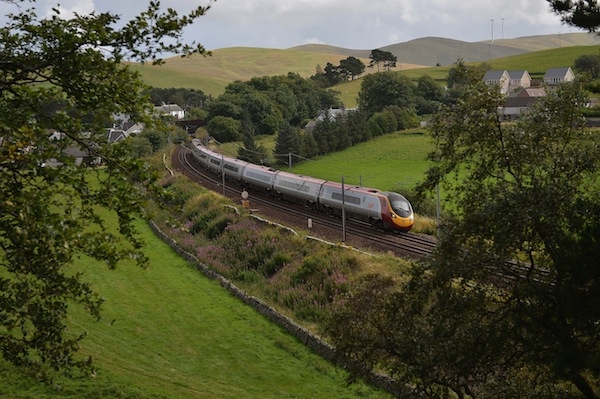This Monday Transport Secretary Patrick McLoughlin faced the House of Commons to make a second statement on the fiasco surrounding the West Coast Mainline rail franchise. Reporting on the initial findings of an inquiry into what went wrong, the Transport Secretary said the conclusions made ‘uncomfortable reading’ and showed, amongst other failings, a lack of transparency in the process, inconsistencies in the treatment of bidders and technical flaws in the modelling.
While these revelations raise huge concerns about the internal working at the Department for Transport, I was glad to see the Transport Secretary approach his department’s shortcomings with openness and transparency; I commended his approach during the statement. However, it is not sufficient to promote transparency on this bidding process alone. In the wake of such fundamental failures, trust in the Department’s ability to deliver has been shaken.
This is why we need to see this re-examination extended beyond the WCML franchise and applied to the largest project ever proposed in peacetime, which is currently on the Secretary of State’s desk – HS2.
Following the dramatic revelations that the calculations and processes for WCML were flawed, I wrote immediately to the Transport Secretary, asking him ‘to urgently undertake a complete re-examination of the business case, a re-evaluation of the case for HS2 and the basis on which all decisions have been made by the Department for Transport and HS2 Ltd’. The errors in the WCML procurement process will undoubtedly have had an effect on the HS2 project’s business case, which is based partly on WCML passenger numbers and assumptions.
It is reasonable to assume that the Department is using the same figures for the WCML for both HS2 purposes and the franchise bidding process. If they are not, then that means there are two different sets of numbers being used by the Department for the same railway line. It is essential that these matters are clarified or people will have little confidence in the Department and its ability to effectively manage a project of HS2’s size.
There is already strong criticism from railway experts of the methodology and modelling used for the HS2 project. However, the DfT have shown an unwillingness to engage with informed groups and members of the public on the project and have already often been left embarrassed as errors in their calculations and reasoning have been exposed. Experts, both in my Chesham and Amersham constituency and beyond, have been pointing to significant technical flaws in passenger number assumptions, engineering calculations, environmental approaches, as well as the mistakes that have been made even in calculating volumes of spoil from tunnelling. The most simple collection and analysis of responses to last year’s public consultation involved not one but two ministerial apologies. It would appear the same company is carrying out the latest consultation on compensation despite the earlier errors.
This all comes at a time when the Davies Commission is looking into the future of aviation in the UK and where our hub airport should be located. I have always stressed that the Government needs an integrated, joined-up transport plan. The decision to plough ahead with HS2 on this exact point to point route, before this Commission reports back on how we best integrate rail, aviation and other forms of transport, does little more than to undermine any hopes for a robust and long-lasting transport system for Britain.
I cannot accept that we have either done enough work to prove the argument that spending at least £34 billion will achieve the aims of government, to relieve pressure on the WCML, heal the North South divide, secure a low carbon future for rail travel or integrate our transport systems.
The Government will never be forgiven if we end up with the wrong railway in the wrong place at the wrong time and for such a high cost.






Comments